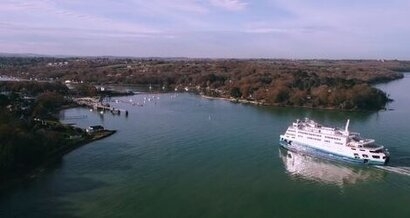
The specifications for the vessel were drawn up by the company ahead of the COP26 international climate change summit, which commenced on Sunday, as part of a pledge to further reduce its carbon emissions significantly over the next decade.
The ferry company already operates England’s first hybrid energy ship, Victoria of Wight, which entered service between Portsmouth and Fishbourne in 2018 and sails round-the-clock carrying passengers, cars and freight using a combination of conventional and battery power. Victoria of Wight’s carbon emissions are 20 percent lower than a diesel-powered ship.
Advances in sustainable technology mean it will be possible to commission a new ship that will use electric power from batteries to an even greater extent than at present by Victoria of Wight. Although there are still obstacles to be overcome, Wightlink hopes that shore power can be used to charge batteries, enabling full electric operation to become a reality.
“Our aim is to operate England’s first all-electric ferry” said Wightlink Chief Executive Keith Greenfield. “We are working with our naval architects and technology companies to come up with the best solution to operate ferries with the lowest possible impact on the environment.”
Since 2007, Wightlink has reduced its carbon footprint by 33 percent. Overall, the company has cut carbon emissions by 17 percent over the four years prior to the Covid-19 pandemic.
For additional information:

